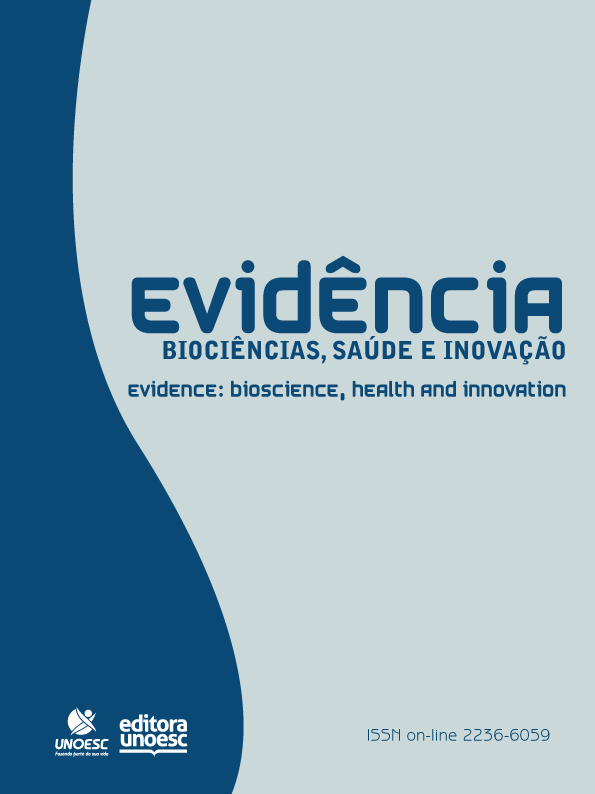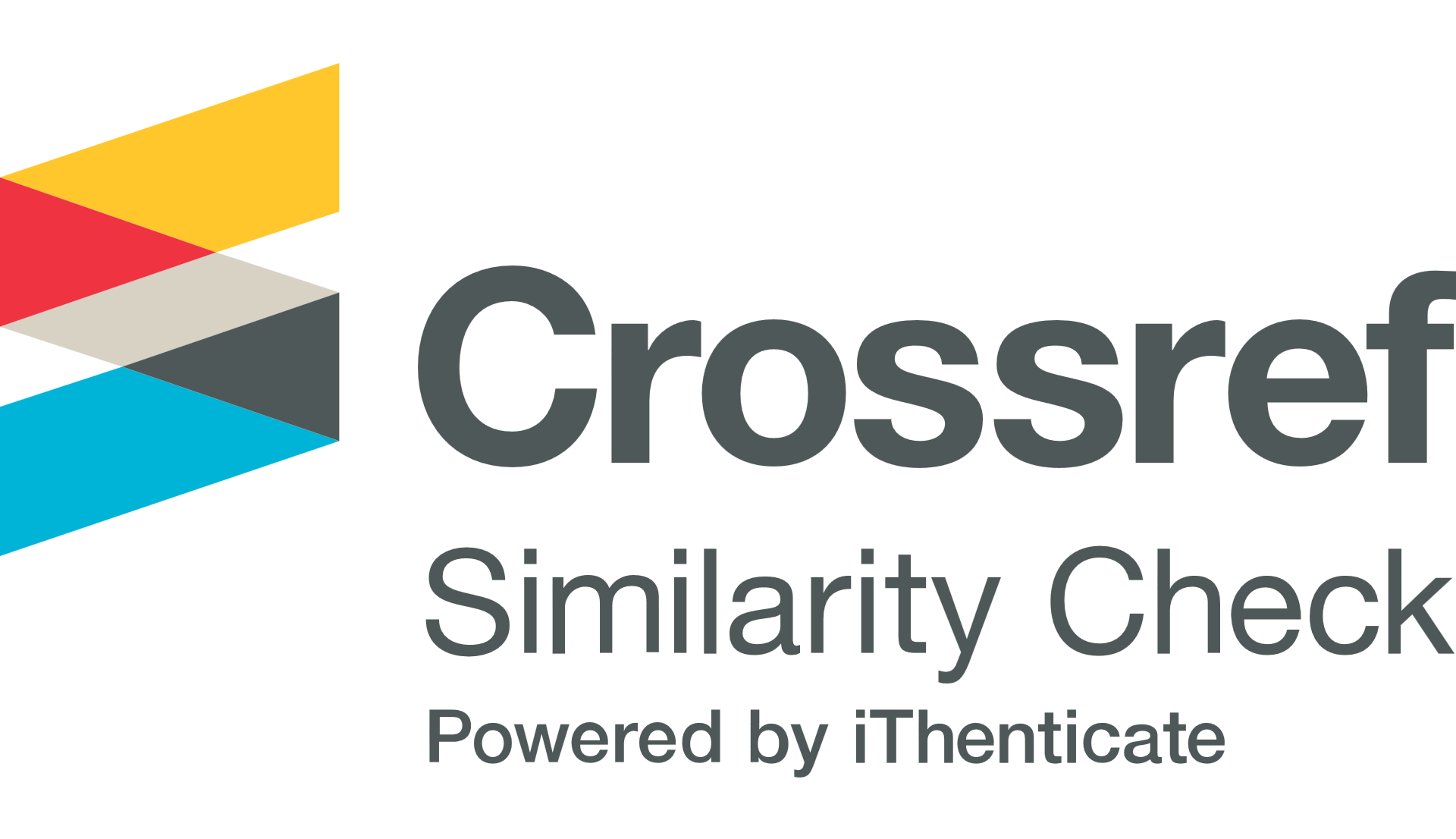Métodos de separação e purificação de biodiesel: uma revisão
DOI:
https://doi.org/10.18593/evid.34125Palavras-chave:
lavagem aquosa, via seca, membranasResumo
Devido às normas impostas pela Agência Nacional do Petróleo, Gás Natural e Biocombustíveis (ANP), a etapa de purificação do biodiesel é de extrema relevância para que o produto final seja comercializado como biocombustível. Entre os métodos existentes para a remoção de glicerol livre e outros contaminantes do biodiesel, a lavagem aquosa é atualmente a mais comum e aplicada industrialmente. Entretanto, devido à geração de efluentes com a purificação por via úmida, diversos estudos têm sido desenvolvidos com o intuito de apresentar novas alternativas a este processo. Assim, este trabalho apresenta uma revisão das diferentes técnicas publicadas na literatura que têm sidos empregadas para a purificação de biodiesel, as quais foram elencadas em purificação por via úmida (lavagem aquosa), purificação por via seca (adsorção e resinas de troca iônica) e o processo de separação por membranas.
Downloads
Referências
Abbaszadeh, A., Ghobadian, B., Najafi, G., & Yusaf, T. (2014). An experimental investigation of the effective parameters on wet washing of biodiesel purification. International Journal of Automotive and Mechanical Engineering, 9(1), 1525-37. https://doi.org/10.15282/ijame.9.2013.4.0126
Agência Nacional de Petróleo, Gás Natural e Biocombustíveis [ANP]. (2008). Resolução Número 7. Agência Nacional de Petróleo. 2008. http://www.anp.gov.br/petro/biodiesel.asp
Alves, M. J., Cavalcanti, Í. V., Resende, M. M., Cardoso, V. L., & Reis, M. H. (2016). Biodiesel dry purification with sugarcane bagasse. Industrial Crops and Products, 89, 119-127. https://doi.org/10.1016/j.indcrop.2016.05.00
Alves, M. J., Nascimento, S. M., Pereira, I. G., Martins, M. I., Cardoso, V. L., & Reis, M. (2013). Biodiesel purification using micro and ultrafiltration membranes. Renewable Energy, 58, 15-20. https://doi.org/10.1016/j.renene.2013.02.035
Arenas, E., Villafán-Cáceres, S. M., Rodríguez-Mejía, Y., García-Loyola, J. A., Masera, O., & Sandoval, G. (2021). Biodiesel Dry Purification Using Unconventional Bioadsorbents. Processes, 9, 2-12. https://doi.org/10.3390/pr9020194
Atadashi, I. M., Aroua, M. K., Abdul, A. A. R, & Sulaiman, N. M. N. (2014). Removal of residual palm oil-based biodiesel catalyst using membrane ultra-filtration technique: An optimization study. Alexandria Engineering Journal, 53(3), 705-715. https://doi.org/10.1016/j.aej.2014.07.002
Atadashi, I. M., Aroua, M. K., Aziz, A. R. A., & Sulaiman, N. M. N. (2011). Refining technologies for the purification of crude biodiesel. Applied Energy, 88(12), 4239-4251. https://doi.org/10.1016/j.apenergy.2011.05.029
Aydın, H., Bulut, Y., & Yerlikaya, Ç. (2008). Removal of copper (II) from aqueous solution by adsorption onto low-cost adsorbents. Journal of Environmental Management, 87(1), 37-45. https://doi.org/10.1016/j.jenvman.2007.01.005
Banga, S., Varshney, P., Kumar, N., & Pal, M. (2014). Optimization of Parameters for Purification of Jatropha Curcas Based Biodiesel using Organic Adsorbents. International Journal of Renewable Energy Research, 4(3), 598-603.
Bashir, M. A., Thiri, M., Yang, X., Yang, Y., & Safdar, A. M. (2018). Purification of biodiesel via pre-washing of transesterified waste oil to produce less contaminated wastewater. Journal of Cleaner Production, 180, 466-471. https://doi.org/10.1016/j.jclepro.2018.01.126
Berrios, M., Martín, M. A., Chica, A. F., & Martín, A. (2011). Purification of biodiesel from used cooking oils. Applied Energy, 88(11), 3625-3631. https://doi.org/10.1016/j.apenergy.2011.04.060
Berrios, M., & Skelton, R. L. (2008). Comparison of purification methods for biodiesel. Chemical Engineering Journal, 144(3), 459-465. https://doi.org/10.1016/j.cej.2008.07.019
Catarino, M., Ferreira, E., Soares, D. A. P., & Gomes, J. (2020). Dry washing biodiesel purification using fumed silica sorbent. Chemical Engineering Journal, 386, 123930. https://doi.org/10.1016/j.cej.2019.123930
Çetinkaya, M., & Karaosmanoǧlu, F. (2004). Optimization of Base-Catalyzed Transesterification Reaction of Used Cooking Oil. Energy Fuels, 18(6), 1888-1895. https://doi.org/10.1021/ef049891c
Conselho Nacional de Política Energética [CNPE]. (2023). Ministério de Minas e Energia. Resolução Número 3. Diário Oficial da União: seção 1, ed. 61, p. 2. 28 de março de 2023.
Demirbas, A. (2008). Biodiesel: A Realistic Fuel Alternative for Diesel Engines. Springer.
Dias, J. M., Santos, E., Santo, F., Carvalho, F., Alvim-Ferraz, M. C. M., & Almeida, M. F. (2014). Study of an ethylic biodiesel integrated process: Raw-materials, reaction optimization and purification methods. Fuel Processing Technology, 124, 198-205. https://doi.org/10.1016/j.fuproc.2014.02.026
Dorfner, K. (2011). Introduction to Ion Exchange and Ion Exchangers. In. Ion Exchangers. Mannheim: De Gruyter (pp. 7-188).
Escorsim, A. M., Cordeiro, C. S., Ramos, L. P., Ndiaye, P. M., Kanda, L. R. S., & Corazza, M. L. (2015). Assessment of biodiesel purification using CO2 at high pressures. The Journal of Supercritical Fluids, 96, 68-76. https://doi.org/10.1016/j.supflu.2014.08.013
Faccini, C. S., Cunha, M. E., Moraes, M. S. A., Krause, L. C., Manique, M. C., Rodrigues, M. R. A., Benvenutti, E. V., & Caramão, E. B. (2011). Dry washing in biodiesel purification: a comparative study of adsorbents. Journal of the Brazilian Chemical Society, 22(3), 558-563. https://doi.org/10.1590/S0103-50532011000300021
Fadhil, A. B., Dheyab, M. M., & Abdul-Qader, A.-QY. (2012). Purification of biodiesel using activated carbons produced from spent tea waste. Journal of Association of Arab Universities for Basic and Applied Sciences, 11(1), 45-49. https://doi.org/10.1016/j.jaubas.2011.12.001
Feizollahnejad, M., Ghobadian, B., Zenouzi, A., & Motevali, A. (2013). Comparison of Mist Circulation Biodiesel Water Washing with Traditional Methods. International Journal of Renewable Energy Technology Research, 2(12), 249-257.
Gerpen, J. V. (2005). Biodiesel processing and production. Fuel Processing Technology, 86(10), 1097-107. https://doi.org/10.1016/j.fuproc.2004.11.005
Gomes, M. C. S., Arroyo, P. A., & Pereira, N. C. (2011). Biodiesel production from degummed soybean oil and glycerol removal using ceramic membrane. Journal of Membrane Science, 378(1-2), 453-461. https://doi.org/10.1016/j.memsci.2011.05.033
Gomes, M. C. S., Arroyo, P. A., & Pereira, N. C. (2013). Influence of acidified water addition on the biodiesel and glycerol separation through membrane technology. Journal of Membrane Science, 431, 28-36. https://doi.org/10.1016/j.memsci.2012.12.036
Gomes, M. C. S., Arroyo, P. A., & Pereira, N. C. (2015b). Influence of oil quality on biodiesel purification by ultrafiltration. Journal of Membrane Science, 496, 242-249. https://doi.org/10.1016/j.memsci.2015.09.004
Gomes, M. C. S., Pereira, N. C., & Barros, S. T. D. (2010). Separation of biodiesel and glycerol using ceramic membranes. Journal of Membrane Science, 352(1-2), 271-276. https://doi.org/10.1016/j.memsci.2010.02.030
Gomes, M. G., & Pasquini, D. (2018). Utilization of eggshell waste as an adsorbent for the dry purification of biodiesel. Environmental Progress & Sustainable Energy, 37(6), 2093-2099. https://doi.org/10.1002/ep.12870
Gomes, M. G., Santos, D. Q., Morais, L. C., & Pasquini, D. (2015a). Purification of biodiesel by dry washing, employing starch and cellulose as natural adsorbents. Fuel, 155, 1-6. https://doi.org/10.1016/j.fuel.2015.04.012
Habert, A. C., Borges, C. P., & Nobrega, R. (2006). Processos de Separação por Membranas. E-papers.
Hu, H., & Xu, K. (2020). Physicochemical technologies for HRPs and risk control. In H. Ren & X. Zhang (Eds.), High-Risk Pollutants in Wastewater. (cap. 8, pp. 169-207). Elsevier.
Ibragić, S., Smječanin, N., Milušić, R., & Nuhanović, M. (2021). Pomelo peel and sugar beet pulp as novel biosorbents in purification of biodiesel. Biofuels, 13(6), 755-762. https://doi.org/10.1080/17597269.2021.1920198
Iglesias, J., Melero, J. A., Bautista, L. F., Morales, G., & Sánchez-Vázquez, R. (2014). Continuous production of biodiesel from low grade feedstock in presence of Zr-SBA-15: Catalyst performance and resistance against deactivation. Catalysis Today, 234, 174-181. https://doi.org/10.1016/j.cattod.2014.01.004
Inglezakis, V. J., & Poulopoulos, S. G. (2006). Adsorption, Ion Exchange and Catalysis: Design of Operations and Environmental Applications. Grécia: Elsevier.
Jeswani, H. K., Chilvers, A., & Azapagic, A. (2020). Environmental sustainability of biofuels: a review. Proc. Math. Phys. Eng. Sci. P ROY SOC A-MATH PHY, 476(2243), 20200351. https://doi.org/10.1098/rspa.2020.0351
Knothe, G., Van, J., Krahl, J., & Pereira, R. L. (2018). Manual do Biodiesel. (2nd ed). São Paulo: Blucher.
Kucek, K. T., César-Oliveira, M. A. F., Wilhelm, H. M., & Ramos, L. P. (2007). Ethanolysis of Refined Soybean Oil Assisted by Sodium and Potassium Hydroxides. Journal of the American Oil Chemists' Society, 84(4), 385-92. https://doi.org/10.1007/s11746-007-1048-2
Manique, M. C., Faccini, C. S., Onorevoli, B., Benvenutti, E. V., & Caramão, E. B. (2012). Rice husk ash as an adsorbent for purifying biodiesel from waste frying oil. Fuel, 92(1), 56-61. https://doi.org/10.1016/j.fuel.2011.07.024
Monteiro, M. R., Ambrozin, A. R. P., Lião, L. M., & Ferreira, A. G. (2008). Critical review on analytical methods for biodiesel characterization. Talanta, 77(2), 593-605. https://doi.org/10.1016/j.talanta.2008.07.001
Nascimento, R. F. do, Lima, A. C. A., Vidal, C. B., Melo, D. Q., & Raulino, G. S. C. (2020). Adsorção: aspectos teóricos e aplicações ambientais. Fortaleza: Imprensa Universitária.
Navas, M. B., Lick, I. D., Bolla, P. A., Casella, M. L., & Ruggera, J. F. (2018). Transesterification of soybean and castor oil with methanol and butanol using heterogeneous basic catalysts to obtain biodiesel. Chemical Engineering Science, 187, 444-454. https://doi.org/10.1016/j.ces.2018.04.068
Nedambale, N., Thokan, Z., Whitaker, R., Matambo, T., Low, M., & Harding, K. (2013). Biodiesel Purification: Comparing water washing with ion exchange resins. Chemical Technology, 28-33.
Ott, L. S., Riddell, M. M., O’Neill, E. L., & Carini, G. S. (2018). From orchids to biodiesel: Coco coir as an effective drywash material for biodiesel fuel. Fuel Processing Technology, 176, 1-6. https://doi.org/10.1016/j.fuproc.2018.02.023
Parente, E. J de S. (2003). Biodiesel: uma aventura tecnológica num país engraçado. Fortaleza: Tecbio.
Paschoal, S.M. (2021). Estudo da purificação de biodiesel utilizando membranas poliméricas e farelo de semente de maracujá como biossorvente. [Dissertação de Mestrado, Universidade Tecnológica Federal do Paraná].
Paula, A. J. A. de, Krügel, M., Miranda, J. P., Rossi, L. F. dos S., & Costa Neto, P. R. (2011). Utilização de argilas para purificação de biodiesel. Química Nova, 34, 91-95. https://doi.org/10.1590/S0100-40422011000100018
Patel, A. (2014). Biodiesel Basics: A Simple Biodiesel Handbook. Createspace Independent Publishing Platform.
Pruszko, R. (2015). Biodiesel Production. In: A. Dahiya (Ed.), Bioenergy Biomass to Biofuels. (cap. 20). Academic Press. https://doi.org/10.1016/B978-0-12-407909-0.00020-1
Rodriguez, N. E., Torres, J. J., Ochoa, N. A., Marchese, J., & Pagliero, C. (2018). Application of a composite ultrafiltration membrane for biodiesel purification. Matéria (Rio J). 23.
Sabudak, T., & Yildiz, M. (2010). Biodiesel production from waste frying oils and its quality control. Waste Management, 30(5),799-803. https://doi.org/10.1016/j.wasman.2010.01.007
Saifuddin, N. M., & Hua, C. K. (2004). Production of ethyl ester (biodiesel) from used frying oil: Optimization of transesterification process using microwave irradiation. Malaysian Journal of Chemistry, 6(1), 77-82.
Santos, F. D., Conceição, L. R. V., Ceron, A., & Castro, H. F. (2017). Chamotte clay as potential low cost adsorbent to be used in the palm kernel biodiesel purification. Applied Clay Science, 149, 41-50. https://doi.org/10.1016/j.clay.2017.09.009
Saleh, J., Dubé, M. A., & Tremblay, A. Y. (2010). Effect of Soap, Methanol, and Water on Glycerol Particle Size in Biodiesel Purification. Energy Fuels, 24(11), 6179-6186. https://doi.org/10.1021/ef1011353
Saleh, J., Tremblay, A. Y., & Dubé, M. A. (2010). Glycerol removal from biodiesel using membrane separation technology. Fuel, 89(9), 2260-2266. https://doi.org/10.1016/j.fuel.2010.04.025
Sandouqa, A., Al-Shannag, M., & Al-Hamamre, Z. (2020). Biodiesel purification using biomass-based adsorbent manufactured from delignified olive cake residues. Renewable Energy, 151, 103-117, https://doi.org/10.1016/j.renene.2019.11.009
Tien, C. (2019). Introduction to Adsorption: Basics, Analysis, and Applications. Elsevier.
Torres, J. J., Rodriguez, N. E., Arana, J. T., Ochoa, N. A., Marchese, J., & Pagliero, C. (2017). Ultrafiltration polymeric membranes for the purification of biodiesel from ethanol. Journal of Cleaner Production, 141, 641-647. https://doi.org/10.1016/j.jclepro.2016.09.130
Vasques, É. C., Tavares, C. R. G., Yamamoto, C. I., Mafra, M. R., & Igarashi-Mafra, L. (2013). Adsorption of glycerol, monoglycerides and diglycerides present in biodiesel produced from soybean oil. Environmental Technology, 34(13-16), 2361-2369. https://doi.org/10.1080/21622515.2013.770558
Veljković, V. B., Stamenković, O. S., & Tasić, M. B. (2014). The wastewater treatment in the biodiesel production with alkali-catalyzed transesterification. Renewable and Sustainable Energy Reviews, 32, 40-60. https://doi.org/10.1016/j.rser.2014.01.007
Wang, Y., Wang, X., Liu, Y., Ou, S., Tan, Y., & Tang, S. (2009). Refining of biodiesel by ceramic membrane separation. Fuel Processing Technology. 90(3),422-427. https://doi.org/10.1016/j.fuproc.2008.11.004
Yellapu, S. K., Bharti, Kaur, R., Kumar, L. R., Tiwari, B., Zhang, X., & Tyagi, R. D. (2018). Recent developments of downstream processing for microbial lipids and conversion to biodiesel. Bioresource Technology, 256, 515-528. https://doi.org/10.1016/j.biortech.2018.01.129
Publicado
Como Citar
Edição
Seção
Licença
Copyright (c) 2024 Evidência

Este trabalho está licenciado sob uma licença Creative Commons Attribution-NonCommercial 4.0 International License.
Declaração de Direito Autoral
Os autores mantêm os direitos autorais e concedem à Revista o direito de primeira publicação, com o trabalho licenciado simultaneamente sob uma Licença Creative Commons – Atribuição – Não Comercial 4.0 Internacional.











